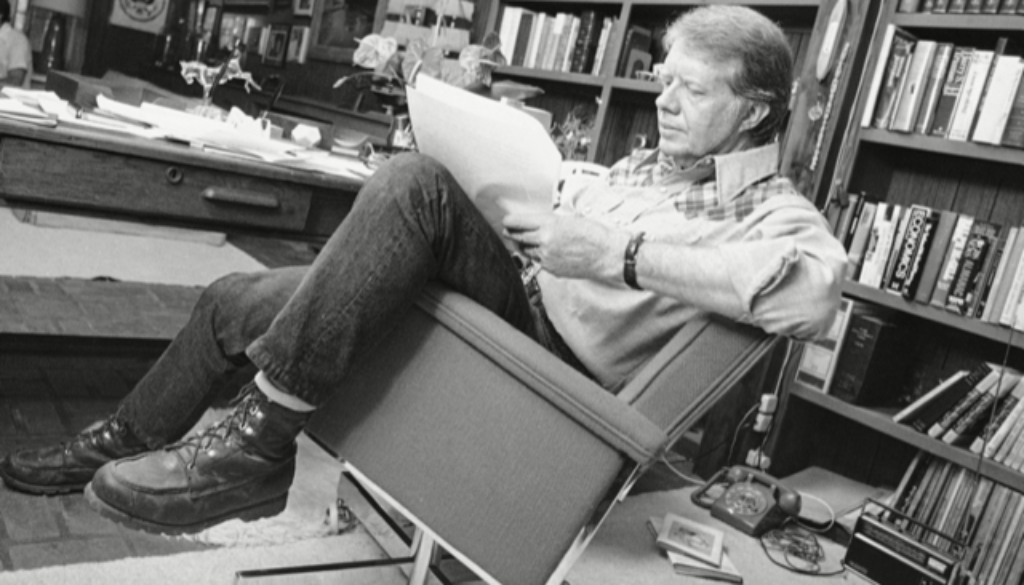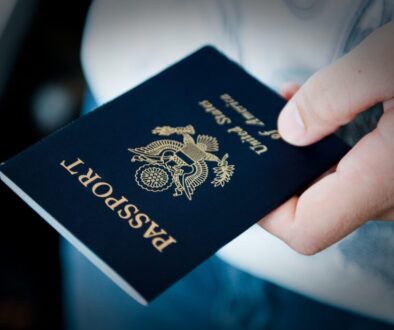A Balanced Appraisal of Jimmy Carter

Atlanta, GA
March 15, 2023
We recently republished our assessments of the best (here, here, here, and here) and worst (here, here, here, here, and here) US presidents. It’s almost as if Jimmy Carter waited for us to finish the lists to see if he was on them.
He wasn’t.
Safely omitted, he entered hospice… and perhaps decided he was ready to die. He will do so as a more elderly man than any president who’s preceded him. And a better one than most.
Unfortunately, he must be in even worse shape than we thought. In an apparent state of delirium…or retaining an extreme appetite for risk…he asked the current president of the United States to deliver the eulogy at his impending funeral. Out of respect for the ex-president, and fear of the the current one, we quickly compile a few words for White House minions to place on the teleprompter.
Carter left office more than four decades ago. Most people remember him more as an honorable ex-president who gave his time than as a micro-managing executive who extracted our treasure. Carter probably doesn’t mind that a bit.
It’s a cliché to say Jimmy Carter is our “best ex-president.” But at least in recent decades, that’s inarguably true.
As with Hoover, Truman, and Nixon, he left office with most people thinking his reputation had nowhere to go but up. Like that of those three predecessors, Carter’s did…only further, and for different reasons.
These days, most ex-presidents benefit by comparison to the opportunistic connivers who followed. Carter certainly did. As historian Kevin Gutzman noted, Carter is doubtless the recent president who provided fewest reasons to be impeached.
In contrast to subsequent chiselers and crooks, he didn’t spend his post-presidency giving speeches when he should’ve hidden in shame. Nor did he peddle presidential influence to amass personal wealth.
After he lost re-election, the vanquished president returned to Plains…to his humble town and modest house. He crafted furniture, made paintings, taught Sunday school, flew commercial, and helped build habitable homes for needy families.
When asked his opinion on some pressing matter or passing fad, he’d give it. It was often idiotic, but not always. If nothing else, he seemed sincere, and usually was.
When seeking the presidency, he promised Americans he’d never lie to them. Given his line of work, he almost certainly did. But not as much as most, and maybe not enough. After all, he wasn’t re-elected.
Jimmy Carter was in no way a “great” president…which I mean as a compliment. Most historians rate him slightly below average, which is probably about right.
But by modern standards…like mild indigestion after spoiled meat…he could’ve been worse. And he was far better than any who followed him, with the possible exception of his immediate successor.
His much-maligned “malaise speech” has become an epitaph of his era, and came across like an attack ad against himself. But excepting its six hopelessly moronic and economically illiterate “points” to confront the government-inflicted “energy crisis”, even that address was pretty decent in retrospect…which seems a good way to describe the man.
Jimmy Carter grew up in rural south Georgia. Having an interest in engineering, he was intelligent enough to transfer from Georgia Southwestern College to the Georgia Institute of Technology.
But being smart doesn’t always make one wise. The next year, he left Tech for the Naval Academy (his grades must’ve been too poor for him to cut it at this author’s alma mater).
After graduation and deployment (and the indebtedness and death of his father) Carter returned to public housing in Plains, Georgia. He applied his engineering background to farming, and eventually developed a successful family business.
As a prominent citizen in a segregated town, Carter was reluctant to make enemies, but he quietly sympathized with integrationist trends. After a stint as state senator, he ran for governor. He lost his first race, but won the next by making “populist” appeals that were necessary to win.
When he did, he began speaking out against racial policies in home state. He started doing so right away…in his inaugural address…outraging segregationist supporters who felt betrayed.
As a harbinger of things to come, he was antagonistic with the legislature while advocating government reorganization to inhibit corruption and reduce costs. In another harbinger, it did neither.
During the disillusionment of the post-Watergate period, Carter decided to run for president. Outside Georgia, few had heard of the one-term governor. Throughout the Democratic primaries, he used his obscurity to his advantage, and his quaint anonymity provided a refreshing contrast to his opponents’ records.
He introduced himself humbly, by saying “I’m Jimmy Carter, and I’m running for president.” Fed up with everyone else, enough of those who heard him wondered: “What the Hell? Why not?”… and pulled the lever for the unknown Georgian.
He won the nomination, and the presidency.
Carter walked in his inaugural parade, a welcome revival of Jeffersonian symbolism. He continued that symbolic simplicity throughout his term, by carrying his own (empty) bags and not allowing “Hail to the Chief” to be played when he entered a room (a decision he regrettably later regretted). More substantively and most laudably, upon taking office he immediately pardoned all Vietnam draft evaders.
So far, so good.
He did plenty of goofy things like boycotting the Olympics, putting solar panels on the White House, and suggesting Americans turn down thermostats and wear sweaters at home as the best way to keep warm.
But Carter did more serious damage too. Perhaps because of his Baptist background, subtle self-righteousness pervaded much of his presidency (as, in more crude fashion and for different reasons, it would those that followed). His administration was defined by the self-inflicted energy “crisis”. Carter called his crusade to conquer it “the moral equivalent of war”, and its misbegotten battles have been taking unnecessary casualties ever since.
Economic “shortages” are usually a function of artificial interference, such as government price controls and compulsory “conservation.” Like any good, energy is scarce. It becomes abundant only where free markets in pricing and ingenuity permit it to proliferate.
Declaring a dopey “war” to preserve energy is as idiotic as outlawing rent to encourage housing. So having no real foe against which to wage its phony “war”, the Carter Administration did what government does best: it became its own worst enemy, and ours.
Jimmy Carter is the only president to serve a full-term who didn’t appoint a Supreme Court justice. That’s fine. Whoever he picked would doubtless have been dreadful.
But he more than made up for not giving us a terrible lifetime appointment by inflicting the Departments of Energy and Education on a hapless public. Despite what were once quadrennial Republican “promises” to eliminate both, these destructive and unconstitutional special interest sops looks like they’ll be here forever.
From a variety of State-induced causes that Carter inherited and exacerbated, his term was beset with stagflation and shortages. As a well-intentioned man, Carter wanted to address these scourges in the worst way.
And that’s exactly what he did…with proposals for gas rationing and price controls. Then, right on cue, came the queues. Only a government official or PhD economist would’ve been surprised.
Carter approved the corrupt Chrysler bailout, providing a template by which connected industries use the government conduit to funnel other people’s wealth to their pockets. Likewise, the Public Works Employment Act was a warmed over New Deal-ish program that moved taxpayer dollars to corporate coffers.
The Love Canal calamity prompted US government incursions…including a predictable declaration of “emergency”… to perpetuate a problem caused by local government and compounded by the EPA. Even Bill Clinton later referred to Carter’s reflexive Superfund legislation as a “disaster.”
Carter handled the partial meltdown at Three Mile Island a bit better. It was an odd “disaster” in which nobody died and no detrimental health impacts were documented. The president properly recognized the incident as more a problem of public perception than a reason too rebuke nuclear power.
Having background in nuclear engineering, Carter deserves credit for a relatively measured response that didn’t foment fear (there was no need; other interests were doing plenty of that). After assessing the situation, he recommended new precautions, reiterated the necessity of nuclear power, and advised acceleration in its development. Unfortunately, his advice wasn’t heeded.
Like most administrations, Carter’s was inundated with economic ignoramuses. And the president’s relationship with Congress was inordinately bad, which speaks well of Carter’s character, if not his acumen.
From political expediency, he launched a ridiculous anti-trust action against cereal companies, and blamed the oil industry for persistent shortages caused by the State. Yet despite rampant ineptitude, there were real accomplishments for which Carter rarely receives credit.
Most of his economic plans…like universal health “insurance”…were clearly incompetent. But many beneficial results later attributed to Reagan derived from actions taken under Carter.
Deregulation of the airlines, the beer industry, and natural gas distribution are all feathers in Carter’s cap. The Teamsters actually endorsed Reagan on condition he delay trucking deregulation Carter proposed. And the (admittedly reluctant) appointment of Paul Volcker as Chairman of the Fed eventually led to strangulation of endemic stagflation, albeit too late to avert Carter’s electoral defeat.
Like all modern administrations, his was littered with the usual assortment of internationalist creeps, like Zbigniew Brzezinski. There were some bright spots, like the Camp David Accords, the Canal Treaty, and SALT II, which each party respected without either side ratifying.
But Carter also gave us his eponymous “doctrine”…something of a corollary to the Truman Doctrine…which reinforced the reprehensible precedent of incessant American meddling around the Persian Gulf.
This unfortunate declaration was made a couple months after American hostages were taken in Tehran. That crisis overwhelmed the last year of Carter’s term, and seemed certain to prevent another one. But soon after the US Embassy was seized, Carter received a lifeline.
When the Soviets invaded Afghanistan, the president’s approval received a temporary reprieve. Foreign friction often sparks domestic support for incumbent presidents. This was no exception.
With the situation in Iran unraveling, the Cold War revived a reliable script to which Carter could revert. He applied sanctions on the Soviets, including embargoing American shipments of grain, high technology exports, and Olympic athletes. At least initially, the audience cheered. But before the final act, the crowd turned ugly. By the following Fall, it was curtains for Carter, and the show closed.
Jimmy Carter was a Christian gentleman…as opposed to, say, Bill Clinton, who pretended to be both but was patently neither.
Carter carried a Bible to church because he planned to read it while worshipping. His faith wasn’t the photographic prop so cynically manipulated by his cynical successors. His simplicity was refreshing, sincere, and (unfortunately) anachronistic.
As a politician, he couldn’t be all good. But Jimmy Carter retained the dignity and demeanor of a southern gentleman. Historian Brion McClanahan once called him our last republican president.
That’s true. And he probably always will be.
JD



